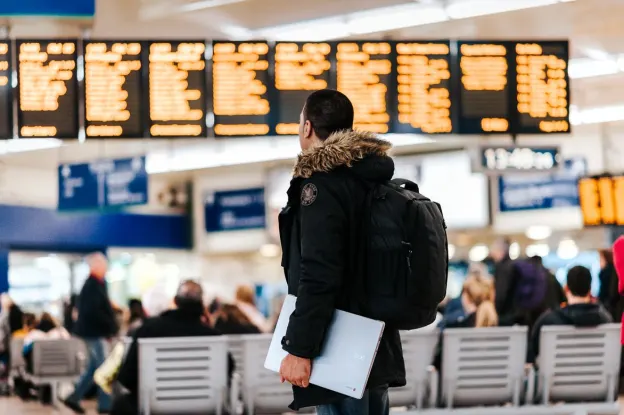According to recent research by NordVPN, 1 in 4 travelers have been hacked when using public Wi-Fi while traveling abroad. Most of those hacks happen while travelers are in transit at train stations, bus stations, or the airport.

What are the dangers of public Wi-Fi in airports and train stations?
Travelers are easier to trick because they usually don’t know what the legit Wi-Fi name in a certain place abroad is. This makes it easier for hackers to set up “evil twins” — fake Wi-Fi hotspots — in places frequently visited by tourists, like airports or train stations. If a traveler connects to such a hotspot, all their personal information (including payment card details, private emails, and various credentials) will be sent to a hacker.
However, legitimate public Wi-Fi networks can also be unsafe because they’re still public. A hacker can connect to an open network anytime, snoop on users’ online activity, and steal their passwords and personal information. This attack is called a man-in-the-middle attack and is performed when a cybercriminal places their device between the connection with a person’s device and the Wi-Fi spot.
How to protect yourself
Even though public Wi-Fi poses risks to our data, it still remains a necessity for many travelers. Experts at NordVPN listed some travel tips to help travelers keep their devices protected during the trips:
- Use a VPN. The best and most effective way to ensure travelers’ security over an open Wi-Fi connection is by using a VPN service. It encrypts data and doesn’t allow third parties to intercept a user’s data.
- Disable automatic connections. This will prevent you from connecting to the network you didn’t intend to.
- Do not share your credentials. Travelers like to make reservations on the go, which is convenient, especially if you have lots of free time before catching your flight. However, this does make your data more vulnerable, so we do not recommend booking hotels or plane tickets while connected to a public network. An attacker may capture your online bank’s credentials or credit card information.
